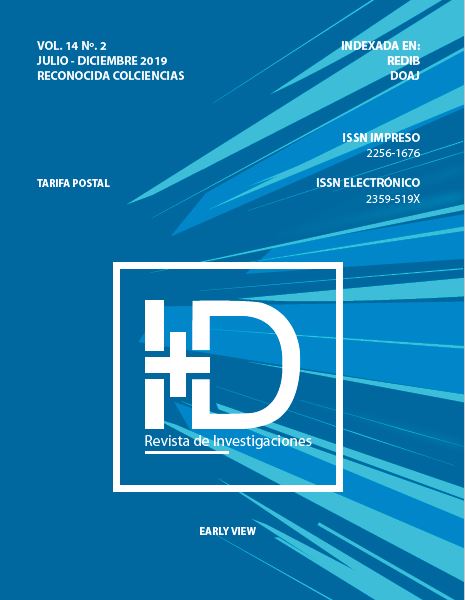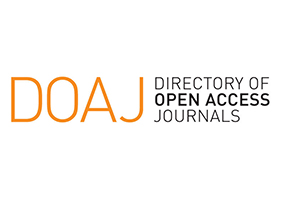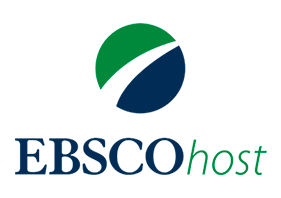Development of computational thinking based on design of educational technology
DOI:
https://doi.org/10.33304/revinv.v14n2-2019007Keywords:
Computational thinking, educational technology, research nursery, digital literacy.Abstract
The digital age and continuous technological advances generate changes in the way of living, acting and thinking, demanding new skills to be competitive, innovative. The advances originate new abilities; inventions such as the wheel, the light bulb, the automobile, the computer, and the Internet, were establishing various types of illiteracy. Initially, the term included the inability to read and write; then the need for a second language, and finally, minimum skills to meet the challenges of the knowledge society with new digital resources. For the 21st century, it is called digital literacy, with obligatory changes in the way of thinking, acting and solving problems. The answer is computational thinking, seen as the ability to solve problems with the support of technology and computing. In the range of strategies to achieve its development, the accumulated results are presented in 2 years, from a research hotbed.Downloads
References
Basogain, X., Olabe, M., & Olabe, J. (2015). Pensamiento Computacional a través de la Programación: Paradigma de Aprendizaje. RED. Revista de Educación a Distancia, (46), 2.
Bermejo, V. (1998). Desarrollo Cognitivo. España: Editorial Sínstesis.
Braslavsky, B. (2003). ¿Qué se entiende por alfabetización? Revista Latinoamericana de Lectura. 24(2), 6-23
Cassany, D., & Castellà, J. (2011). Aproximación a la literacidad crítica. Perspectiva, 28(2), 353-374.
Castañeda, L. (2000). Pensar, tarea esencial de lideres y gerentes / Think, which was Critical of Leaders and Managers: Aplicacion Del Pensamiento Multimodal a La Toma De Decisiones Y La Solucion De Problemas Organizacionales. México: Ediciones Poder.
Czernik, D. (2006). Alfabetos y saberes: la alfabetización digital. Comunicar: Revista científica iberoamericana de comunicación y educación, (26) 78-82.
Duque, A. P. G., & Rojas, C. D. G. (2018). Las competencias digitales y el uso de las tecnologías sociales: el valor agregado en la comercialización en el sector calzado en Bucaramanga. I+ D REVISTA DE INVESTIGACIONES, 11(1), 17-26.
Galina, I. (2002). La lectura en la era digital. Red de revistas científicas de América Latina, el Caribe, España y Portugal, 5(1), 11-15.
Guaña, E., Valencia, J., Topón, D., & Pérez, M. (2016). El analfabetismo digital en docentes limita la utilización de los evea. Revista Publicando, 3(8), 24-36.
Lara, A. (2012). Desarrollo de habilidades de pensamiento y creatividad como potenciadores de aprendizaje. Revista Unimar, 30(1).
Llorens Largo, F., García-Peñalvo, F. J., Molero Prieto, X., & Vendrell Vidal, E. (2017). La enseñanza de la informática, la programación y el pensamiento computacional en los estudios preuniversitarios. Education in the Knowledge Society (EKS), 18(2), 7-17.
Marzano, R. (1992). Dimensiones del aprendizaje. México: Instituto Tecnológico de Estudios Superiores de Occidente.
MedlinePlus. (2018). Lóbulos del cerebro. Retrieved from https://medlineplus.gov/spanish/ency/esp_imagepages/9549.htm
Monereo, C., & Castelló, M. (1997). Las estrategias de aprendizaje. España: Edebé.
Nava, G., & Alemán, R. (2009). Lectura en Lengua Materna (Español) y el Desarrollo de la Producción Oral y Escrita en Inglés. México: MEMORIAS DEL V FORO DE ESTUDIOS EN LENGUAS INTERNACIONAL.
Rodriguez, M., & Dolores, M. (2008). Alfabetización digital: el pleno dominio del lápiz y el ratón. España: Universidad de Huelva.
Simanca, F. A., Porras, A. A., Garrido, F. B., & Hernández, P. C. (2017). Implementación de herramientas tecnológicas en los procesos de enseñanza- aprendizaje de los triángulos. I+ D Revista de Investigaciones, 10(2), 79–88. https://doi.org/10.33304/revinv.v10n2-2017006
Torres, R. (2006). Alfabetización y aprendizaje a lo largo de toda la vida. Revista interamericana de Educación de Adultos, 28(1).
Valverde, J., Fernández, M., & Garrido, M. (2015). El pensamiento computacional y las nuevas ecologías del aprendizaje. RED-Revista de educación a distancia, 46(3).
Vigotsky, L. (1979). El desarrollo de los procesos psíquicos superiores. Barcelona: Edit. Crítica,.
Villa, A., & Poblete, M. (2007). Aprendizaje Basado en Competencias. Bilbao: Ediciones Mensajero.
Wing, J. (2006). Computational thinking. Communications of the ACM, 49(3), 33-35.












